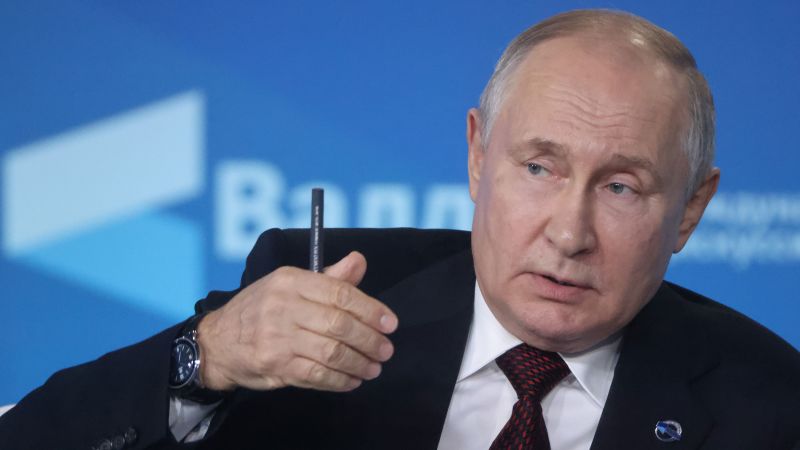









On January 21, 2024, Russia marked the centenary of Vladimir Lenin's death. Lenin, the architect of the Bolshevik Revolution and the first leader of the Soviet Union, died of a brain hemorrhage at the age of 54 on January 21, 1924 [7f71ea04][4ead2554]. A century after his death, Lenin's legacy seems to be fading in modern Russia. The Red Square mausoleum, where his embalmed corpse lies, is now a site of macabre kitsch, drawing fewer visitors than the Moscow Zoo. The Communist Party, although the largest opposition grouping in parliament, holds only 16% of the seats. Even President Vladimir Putin himself appears inclined to keep Lenin at arm's length, occasionally aiming some criticism at him [1132b95c]. However, Lenin still holds an emotional hold for many Russians, and initiatives to remove his body from the mausoleum have been met with public outcry. About 450,000 people visit Lenin's corpse per year, a sharp contrast from the Soviet era when seemingly endless lines shuffled across Red Square [1132b95c].
The fall of the Soviet Union and Lenin's controversial legacy have led to a decline in official commemorations for Lenin in China's Communist Party. The party is not holding any official events to mark Lenin's centenary death. Lenin and the 1917 October Revolution, which inspired the founding of the Chinese Communist Party, have been downplayed in recent years. Some attribute this to the fall of the Soviet Union and Lenin's controversial legacy, while others argue that Leninism is ingrained in the DNA of the party. Blots on Lenin's legacy include the Red Terror, famines, and atrocities during Stalin's rule. Lenin statues have been pulled down worldwide since the fall of the Soviet Union. Although official commemorations may be lacking, Leninism still influences China's ruling party. Leninism dictates that the communist party should establish a single-party socialist state called the dictatorship of the proletariat. Leninism also influenced Sun Yat-sen and the early days of the Kuomintang. Young people in China show more interest in Mao than Lenin [30050b89] [44c8c9cf].
In Russia, Vladimir Putin's hold on power can be traced back to a long history of authoritarianism, rather than solely to Boris Yeltsin's crackdown on the parliament in 1993. An analysis by Slate explores the deeper origins of Putin's dictatorship. The article argues that while Yeltsin's shelling of the parliament was a necessary move to counter a coup attempt by a mix of Communists and fascists, the failure to establish democratic institutions and the unintended consequences of economic reforms paved the way for Putin's consolidation of power. Despite Yeltsin's allowance of a free press, Putin later shut down media outlets owned by wealthy individuals and tightened his control over the media landscape [113d750b].
According to a report by Business Insider, Putin's strategy in Ukraine is proving successful both internationally and domestically. Western fatigue with the conflict has resulted in decreased support for Ukraine, as Western countries are becoming less inclined to provide substantial aid. CNN's analysis further highlights Putin's strategy of counting on the fracture of the Western alliance backing Ukraine, as well as Ukraine fatigue in Europe [2048bf95].
In a recent opinion piece by Mikhail Khodorkovsky in The Washington Post, he warns that appeasing Putin will result in the loss of freedom. Khodorkovsky, a former head of the Russian oil company Yukos, recounts his own imprisonment and highlights Putin's transition from a corrupt autocrat to an expansionist fascist dictator. He emphasizes the need to defeat Putin in Ukraine to prevent further aggression and protect freedom. Khodorkovsky criticizes those who advocate for peace talks with Putin, stating that they are either naive or dishonest. He argues that the West's success is based on freedom and warns that freedom is being attacked both from outside and within. Khodorkovsky calls on the West to take decisive action to protect freedom and prevent the surrender of freedom to aggression. He also highlights the persecution faced by the democratic opposition in Russia and calls on the West to work with them to develop a future Russia that is free at home and peaceful abroad [b8a5ed65].
Former CIA chief Jack Devine predicts the downfall of Russian President Vladimir Putin in a 'Black Swan' palace coup. Devine points to Putin's invasion of Ukraine as the catalyst for his political demise. The war in Ukraine has led to a decline in Putin's popularity. Devine warns that the replacement for Putin is unlikely to bring dramatic changes. He also emphasizes the importance of monitoring the geopolitical landscape, particularly the 'Axis of Evil' consisting of China, Iran, and Russia [a95114a9].
According to a recent article by The Daily Beast, Putin has unleashed an orgy of violence in Russia by turning open the prisons and cracking down on dissent under the cover of war with Ukraine. The number of murders and assassination attempts has increased for the first time in 20 years. Putin's close ally Ramzan Kadyrov has condoned violence and even praised his son for beating up a defenseless prisoner. Putin's crackdown has targeted minorities, political prisoners, the LGBT movement, and women's rights. Human rights defenders are documenting Russia's crimes and filing cases to international courts. Western sanctions and an arrest warrant against Putin have not slowed down Russia's attacks on Ukraine. Putin is focused on retaining power in the upcoming 2024 presidential election [a12abef7].
On January 24, 2024, the CPI(M) Delhi state committee organized a public meeting at Surjeet Bhawan to observe the centenary of Lenin's death. Sitaram Yechury, general secretary of CPI(M), addressed the meeting and highlighted Lenin's contributions to human liberation and his support for anti-imperialist and freedom movements worldwide. He discussed the scientific and revolutionary aspects of Marxist philosophy and emphasized the need to defeat communal forces and remove them from state power in India. The public meeting included a play, exhibition, singing of revolutionary songs, and a movie screening. Lenin's book 'What Is to Be Done?' was released during the meeting. Brinda Karat and KM Tiwari also participated in the event [de40f26a].